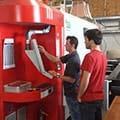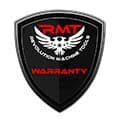A New Way of Working
At various times in human history, some event will come along that will change how business is done, either long-term, through technological advancements, or short-term through some crisis. Even some limited-time difficulties will provoke lasting changes, such as the metalworking breakthroughs that were developed by necessity during the second World War.
The COVID-19 pandemic has changed how businesses have to be run, and even when and if it is completely eliminated, some new challenge will always loom on the horizon. Like all fields, the metal fabrication industry has to be flexible enough to adapt, regardless of what happens in a community or society as a whole.
There are certain safeguards that have come into being, both as legal requirements and as recommendations, for responsible workplace procedures during this pandemic. All metal fab shops and contractors should adapt themselves to the “new normal” for as long as it lasts and should continue to practice some of these habits even when the danger has passed.
Good Hygiene, Good Health
No matter the circumstance, reducing exposure to any contaminant—chemical, disease or otherwise—is the smart and safe thing to do. Even without a major health crisis, it’s always important to wash hands with soap and water when finished using the bathroom. Diseases like E. coli infections often spread between individuals due to contact through hands, whether directly or indirectly through a contaminated surface. Thorough washing for 20 seconds can eliminate viruses and hand sanitizer can kill bacteria.
Even with fairly clean hands, it is always a good idea for people to decrease the frequency with which they touch their faces, as that is where most diseases enter the body. Sneezing and coughing into a tissue or when necessary into the inside of an elbow will slow the spread of any infection, whether a cold, the flu or COVID-19.
Disinfecting tools and surfaces touched by more than one employee or customer should be a frequent practice throughout the business day during any major outbreak, including seasonal influenza, and it should be maintained as a regular daily procedure during safer times. Face masks and other facial coverings have been shown to reduce the spread of disease by an infected person, and it is a common sight year-round in some countries.
Keep Your Distance
Out on a jobsite, separating from other workers or customers by a safe distance—usually about six feet—can be accomplished fairly easily with some planning, but in a small, crowded shop area it can be a little more challenging. Still, social distancing at work can be achieved by moving some tasks offsite or to a more remote part of the building or property or by creating shifts for workers so they are not all in the shop at the same time. Shop workers and other employees should resist the temptation to congregate in close quarters during lunch and other breaks.
Since many fabrication jobs require two or more personnel to be present, wearing face masks and other protective gear and working as far apart as possible can limit the potential spread of disease. Adding extra time between loading/unloading parts and the actual operation can reduce contact between employees, and it is always better to keep a shop running at a slower rate than to have a large part of the staff out sick at the same time.
While telecommuting may be an option for office staff, it doesn’t really work well for hands-on employees, like metalworkers and operators. Still, some functions can be done remotely via modern technology, such as using a cell phone to stream a video conference between a customer and a project manager regarding a current job.
It’s Called Sick “Leave” for a Reason
Employees should be encouraged to leave work and stay at home if they are sick. Trying to “tough it out” for the sake of a project may result in several absent employees down the road. Employees should seek the advice of a competent medical provider to determine when it will be safe for them to return to the shop or office.
If your company doesn’t offer paid sick leave, look into the possibility of setting up some special fund that can be used to financially assist ill employees in times of major catastrophes, such as a pandemic. It is more devastating to a company to have multiple staff members out at once or to lose a key employee than it is to spend a little to take care of these essential assets.
In the case of COVID-19, it is prudent for any business to develop and implement some sort of contact tracing procedure to be followed for employees who have tested positive for the virus. Knowing which staff are at risk and should be tested can minimize further spread of the disease.
Safety First
Making the safety of workers a priority always leads to stability and profitability in a company. Educate your staff, whether they work in the shop, in the office or in the field, on basic principles like social distancing and hygiene. Take special consideration of older workers or those that have serious health issues during outbreaks of disease, including annual flu season.
Healthy workers are essential to a healthy business, so regardless of calm times or crisis, make sure your employees are always as safe and protected as possible.







